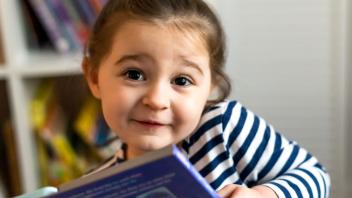Teaching by Listening , a study from the July 2009 journal Pediatrics, is all about the contribution of adult-child conversations to a child’s language development. This piece, along with other research, documents the effect of language in the home on a child’s vocabulary. Without question, kids who hear more words spoken at home learn more words and enter school with better vocabularies. This word knowledge advantage pays off exponentially as a child progresses through school. Those who hear fewer words fall victim to The Early Catastrophe , the 30 million word gap by age 3.
The study from Pediatrics confirms the value of language, but more importantly, it reminds us that parents can get a lot more mileage out of those bedtime books by adding in quality bedtime chats, about the book, or about anything!
Three of the authors’ findings seem useful and important enough to share with parents during these first few weeks of school:
- Don’t just read a book to your child. Engage them in conversation during and after the reading. Make sure the conversation is two-sided. The more “conversational turns” a child gets, the better.
- When you’re talking to your child, adjust what you’re saying based on your child’s language skill. Your language should be neither too simple so that no new words are learned, nor so difficult that your child doesn’t understand what you’re saying.
- Get your child talking, a lot. The more talking a child does, the more they are provided with an opportunity to practice and consolidate newly acquired interesting words.
About the Author
Along with her background as a professor, researcher, writer, and teacher, Joanne Meier is a mom. Join Joanne as she shares her experiences raising her own young readers, and guides parents and teachers on the best practices in reading.

